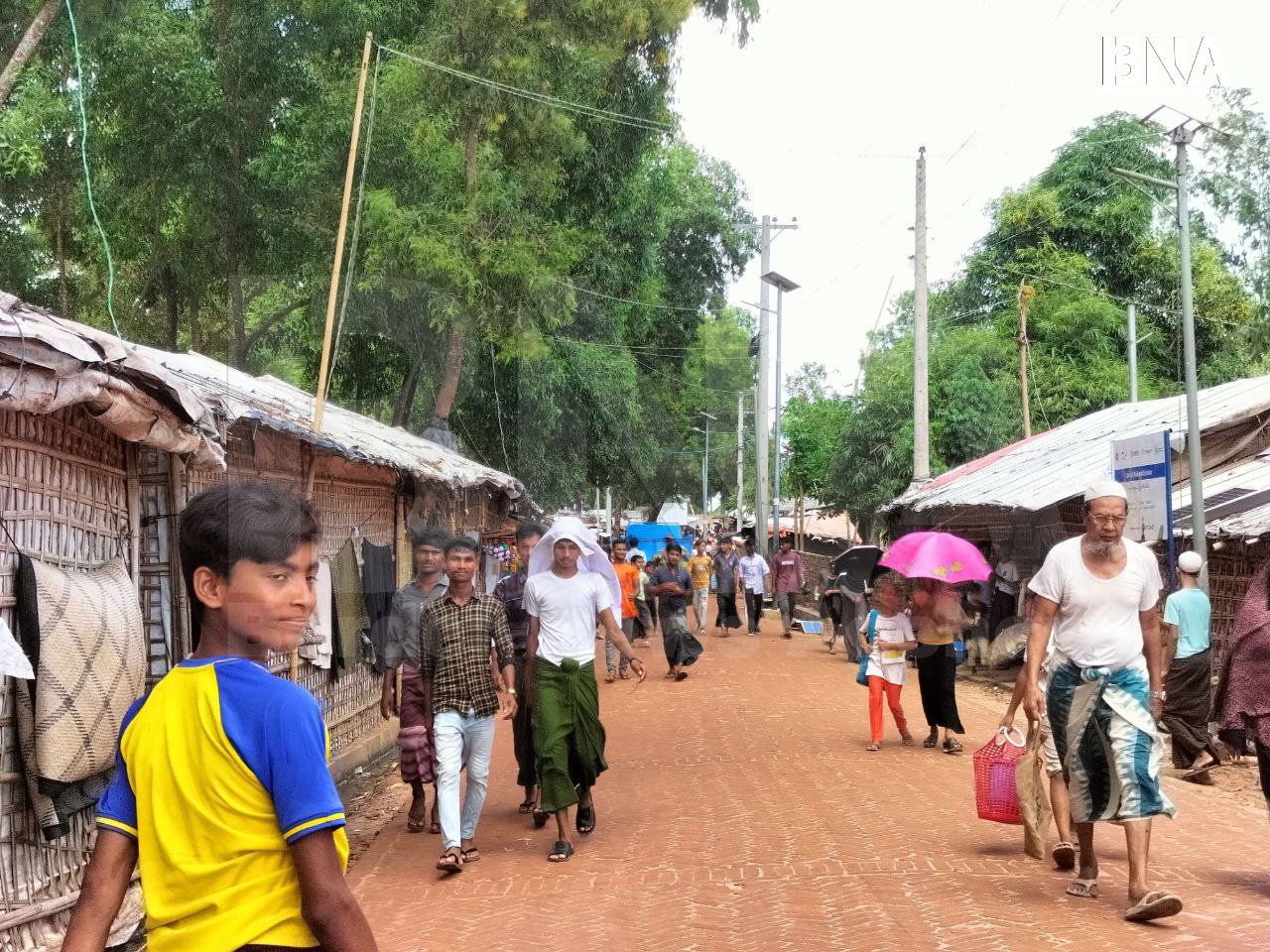Border News Agency
Cox’s Bazar, May 26, 2025
Over 150,000 Rohingya refugees have fled Myanmar and entered Bangladesh in recent months, with an additional 50,000 expected by the end of the year, according to the UN World Food Programme (WFP). The rising numbers have raised alarm bells among humanitarian agencies and the Bangladesh government, which is already grappling with dwindling international support.
The new wave of arrivals adds to the already massive Rohingya population residing in camps in Cox’s Bazar and Bhashanchar. If the current trend continues, the total number of Rohingya refugees in Bangladesh could reach 1.25 million by year-end, further escalating one of the world’s most protracted refugee crises.
“The situation is deeply troubling,” said Refugee Relief and Repatriation Commissioner Mohammed Mizanur Rahman. “International funding is drying up, and yet the number of arrivals keeps increasing. This puts unbearable pressure on our limited resources.”
The recent surge is driven by escalating violence in Myanmar’s Rakhine State, where fighting between the Myanmar military and the Arakan Army has intensified since 2023. The Arakan Army now reportedly controls over 80 percent of the region. Refugees say they are fleeing forced labor, violent raids, and a looming famine, as warned by a November 2024 UNDP report.
Despite strict border patrols, officials estimate that 30 to 40 Rohingya continue to enter Bangladesh each day through remote and unmonitored routes, aided by brokers from both Rohingya and Bangladeshi communities. Many new arrivals are from conflict-affected areas in Rakhine, while some have recently been pushed into Bangladesh by Indian authorities. Around 70 such refugees have been accommodated in camps in recent days, according to officials.
Since the peak of the crisis in 2017, when about 750,000 Rohingya fled a brutal military crackdown, not a single refugee has voluntarily returned to Myanmar. Calls for repatriation have stalled due to ongoing insecurity and the lack of guarantees for citizenship and basic rights.
The growing population has outpaced the support available. The 2025 Joint Response Plan, which requires $934.5 million to assist refugees and host communities, is critically underfunded. Only $140.6 million just 15 percent of the target has been secured so far. Last year, a similar appeal for $852 million fell short, reaching only 68 percent of the funding goal.
The WFP, which provides the sole monthly food rations for the refugees, is particularly strained. It needs $86 million to continue supporting the current population and an additional $2.9 million each month to accommodate the new arrivals.
“How we are going to meet these funding needs is a very serious question,” Commissioner Mizanur said, expressing grave concern about the sustainability of humanitarian support.
As the crisis worsens and new arrivals continue, Bangladesh and its partners face a growing challenge that requires urgent international attention and action.






